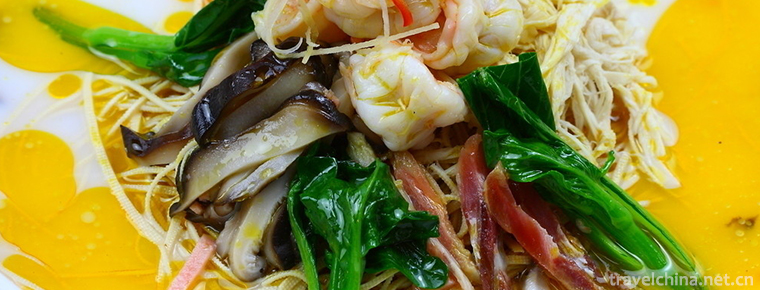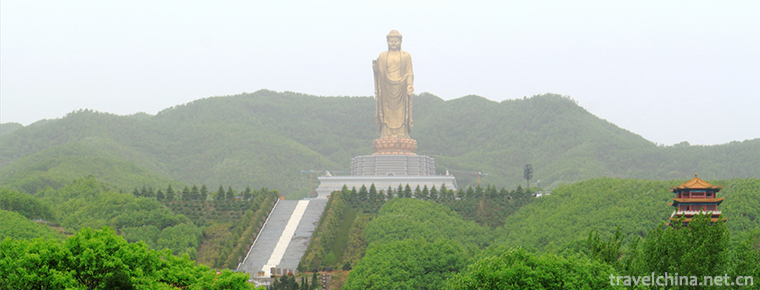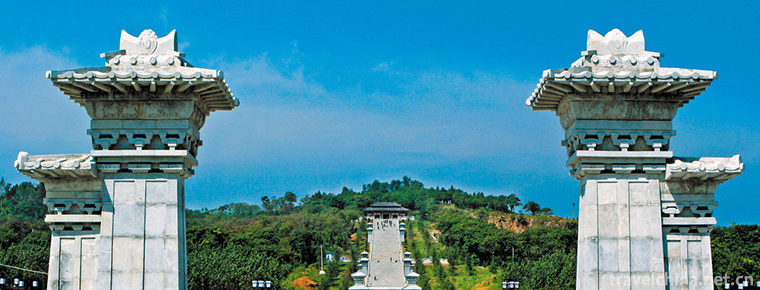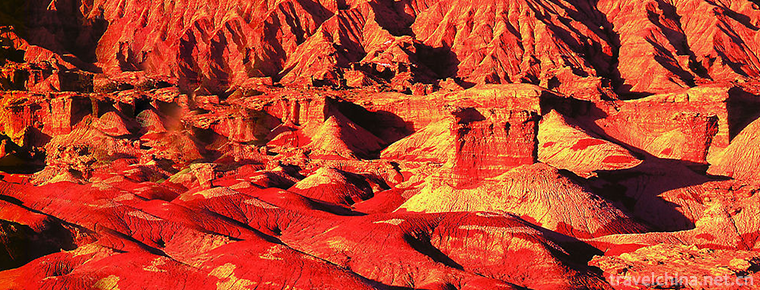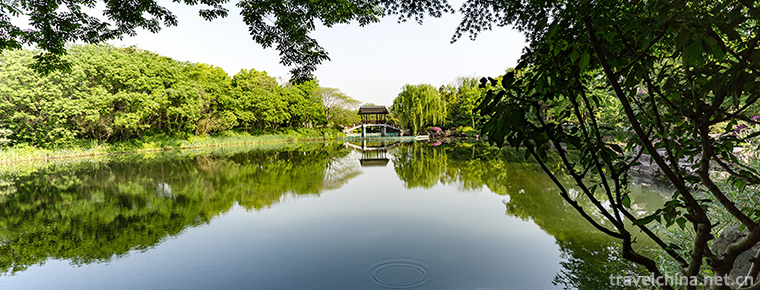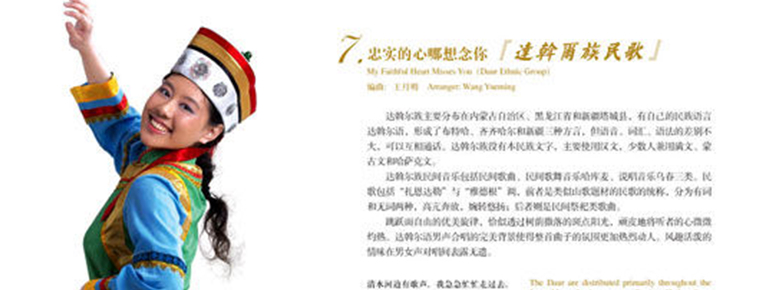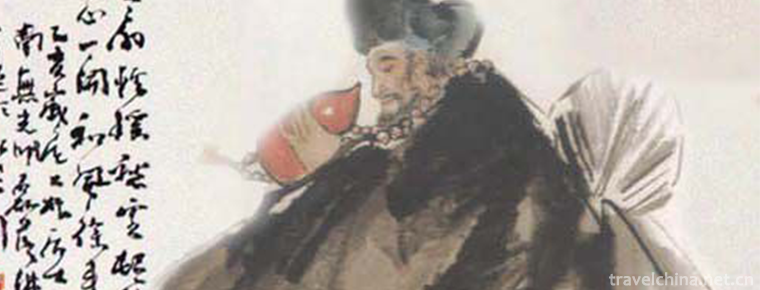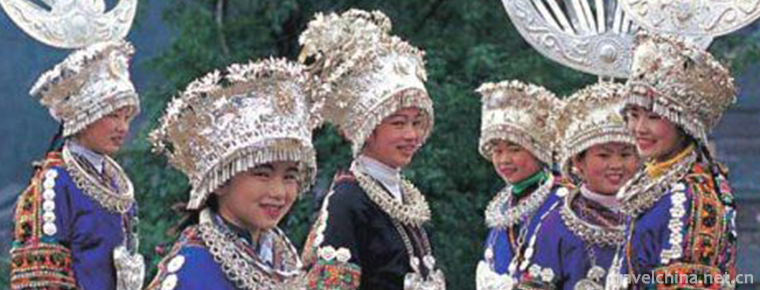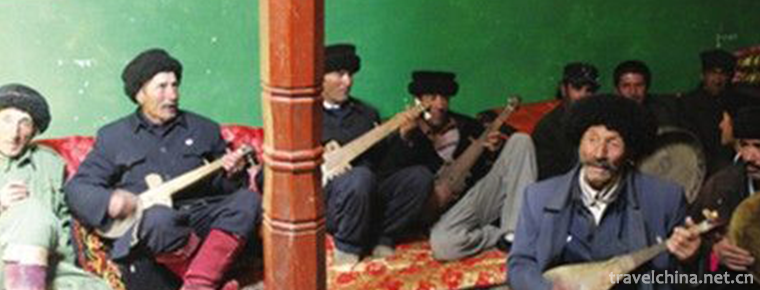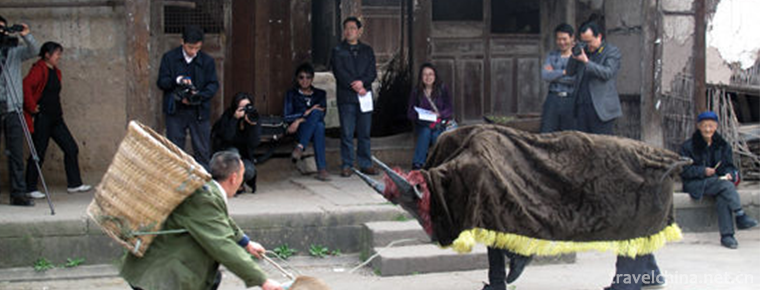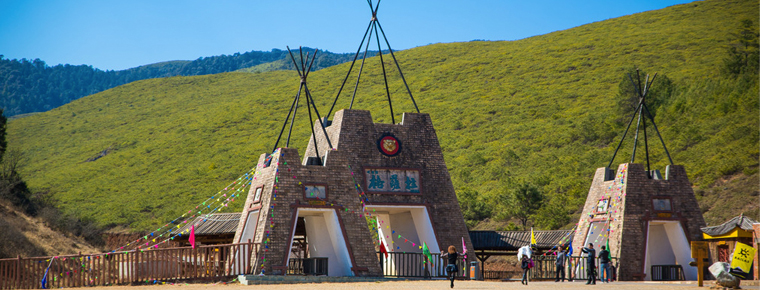Water splashing Festival
Water splashing Festival
Dai Water-Splashing Festival is also called "Bath Buddha Festival". Dai language is called "Sangkangbimai" (meaning "New Year"). Dai people in Xishuangbanna Dai Autonomous Region and Dehong Dai Jingpo Autonomous Region also call this festival "Shanghan" and "Shangjian". Both names are derived from Sanskrit, meaning turnover, change and transfer. It means that the sun has been running for one week in the twelfth Huangdao Palace and began to transit to the new year. Achang, De'ang, Brown, Wa and other ethnic groups celebrated this festival. Cambodia, Thailand, Myanmar, Laos and other countries also have Water-Splashing festivals. Water-splashing Festival is usually held in mid-June of the Dai calendar (about ten days before and after the Qingming Festival of the lunar calendar), which is one of the most solemn traditional festivals in Xishuangbanna. Its content includes folk activities, artistic performances, economic and trade exchanges and other categories. Specific festival activities include water splashing, swinging, dragon boat racing, Buddha bathing, chanting, Zhang Ha singing and peacock dance, white elephant dance performance, etc.
On May 20, 2006, the Dai Water-splashing Festival declared by Xishuangbanna Dai Autonomous Prefecture of Yunnan Province was listed in the first batch of national intangible cultural heritage list with the approval of the State Council.
historical origin
Origin of festivals
Water-splashing festival originated in India. With the deepening influence of Buddhism in Dai area, Water-Splashing Festival has become a national custom and has been handed down for hundreds of years. At the festival, Dai people, men, women and children, wear Festival dresses, while women each carry a load of clean water to wash the dust for the Buddha statue and ask for Buddha's spiritual protection. After the "Bath Buddha" was over, people began to splash water on each other to express their blessings, hoping to wash away diseases and disasters with holy water in exchange for a better and happy life. The collective splash of water began. People hold water in various containers, gush out of streets and lanes, chase and play, and splash when they meet people. Elegant ones dip branches in water. "Flowers blossom, Dai Jiawang" and "splashing wet, happy life"! The symbols of auspiciousness, happiness and health are blooming in the air. People are sprinkled heartily, laughing loudly, and their whole body is soaked with joy. At night, the village drums and music, people indulge in singing and dancing, extraordinary liveliness. Throughout the festival, in addition to traditional recreational activities such as dragon boat racing, lifting, lighting holes, splashing water and losing bags, there are also new activities such as cockfighting, ballooning, garden party and material exchange. Dai and Wa men and women in Yunnan ethnic villages also wore costumes to celebrate the Water-Splashing Festival with tourists.
Holiday legend
Version 1
The origin of the Water Sprinkling Festival is a myth among the Dai people. Legend has it that a long time ago, the fire demons who ruled the Dai nationality area used to abuse their power in disorder, resulting in no wind and rain among the people, no crops to grow, and the people's lives were very painful. Fire devils have seven wives who have been robbed from the folk girls. They witness the cruelty and viciousness of fire devils. They are very sympathetic to the suffering of the folk people and are determined to eradicate the evil for the people. Because of the magic of fire, seven girls could not kill it. Later, they pretended to make him happy and tricked him into eradicating the secret of the Fire Devil. One day, they set up a feast to accompany the Fire Devil to drink. The seven smart and brave girls took advantage of the fire devil's drunkenness and sleeping, pulled a hair from his head, and quickly strangled his neck. Sure enough, the head of the Fire Devil immediately fell to the ground and burned wherever it rolled. As the fire continues to expand, the big girl is in a hurry to catch her wit and quickly pick up the devil's head. The flames on the ground immediately extinguish and the devil disappears. In order to make the people no longer suffer from the persecution of the devil, seven girls take turns to hold the devil's head and wash the dirt with water in the alternating space until the devil's head turns into dust.
Later, in order to commemorate the heroic spirit of the seven Dai girls, people sprinkled water on the day of annually extinguishing the evil spirits. In fact, the Water Sprinkling Festival originated in India. Water splashing was once a religious ritual of Brahmanism and was later adopted by Buddhism. From the end of the 12th century to the beginning of the 13th century, this ceremony was introduced into the Dai nationality area of Yunnan through Myanmar. With the expansion of the influence of Hinayana Buddhism in the Dai area, the custom of splashing water is widely popular among the people, and merged with local myths to form a solemn fixed festival. In April 1961, Premier Zhou Enlai accompanied the leaders of Myanmar to Yun Jinghong, the capital of Xishuangbanna, Yunnan Province, wearing Dai costumes, to celebrate the Water Sprinkling Festival with the people of all nationalities, which has written a glorious page in the history of the Water Sprinkling Festival. Nowadays, many of the old customs in festivals have been abolished and health content has been added. Usually on the first day of celebration, the army and the people of all ethnic groups celebrate the festival together: the next day, a happy Water-Splashing ceremony; the third day, rush to participate in material exchange activities.
Version two
After the fire and flood were calmed down, Yingbo sent the gods to the earth to arrange seasons and seasons. "Horn Ben" is not arranged, after winter is summer, followed by rainy days, after rainy days is autumn. So "Yingfan" reprimanded "Fangben", and they quarreled. "Yingbo" was very angry. The seven daughters who wanted to "hongbo" cut off their father's head and said they would marry whoever did it. The eldest and sixth daughters dare not kill their father. Only seven daughters wanted to be the wife of "Bell". They put on a crossbow made of their father's hair and used it to cut off the head of "Bell Run". However, as soon as the head fell to the ground, a fire broke out and the seven daughters had to hold up their father's head. After learning about "Yingbo", seven girls had to find a way to connect the head of "Yingbo". But it can't be connected anyway. Finally, it is connected with elephant head. From then on, we had to wash the head of "Horn Running" with clean water, so there was the Water Sprinkling Festival.
Version three
It is said that long before Buddha became a Buddha, he was pushed to be the elder to manage human beings. At that time, Buddha saw that human beings had no calendar, the four seasons were unknown, and farming was inconvenient. He formulated the calendar according to climate change. There are twelve months in a year, thirty days in the first month and twenty-nine days in the second month. But Laojun Taishang believed that this calendar would lead to the reversal of seasons, and should be set for thirteen months, thirty days a month. Two people cut their heads to bet on which calendar is more suitable. As a result, Laojun lost, so he beheaded to fulfill his promise. But because of the fire caused by the landing of his head, the Jade Emperor ordered his seven daughters to take turns to hold each other for one day. Every day is a year on earth. Every year when the head of a person is handed over, it is necessary to wash the bloodstains with water in order to prevent the blood dripping into the human body from causing disasters. Therefore, water is splashed once a year.
Main activities
Activity flow
Water-splashing Festival is the most solemn festival of the Dai people, and it is also the most influential festival among the ethnic minorities in Yunnan, with the largest number of participants. The Dai Water Sprinkling Festival lasts from three to four days. The first day is "wheat day", similar to the lunar New Year's Eve. Dai is called "Wanduo Shanghan", which means sending the old. At this time, people have to clean their houses, clean up, prepare for the New Year's meal and various activities during the festival. The second day is called "annoying day" and "annoying" means "empty day", which is neither the previous year nor the next year according to custom, so it is "empty day"; the third day is New Year's Day, which is called "Mapaya Evening Mama" people are used to regard as "the King of Days Coming"; the fourth day is New Year, which is called "Hornnet Mama" and honored as the first year of the year. People regard this day as the best and most auspicious day. In the early morning of the festival, Dai people, men and women, old and young, put on their festival dresses and carry clean water. First, they go to Buddhist temples to bathe Buddhas. Then they start splashing water on each other, wishing each other good luck, happiness and health. People are dancing and shouting "Water! Water! Water! " The sound of drums and gongs resounded through the clouds, and the water splashed everywhere. The scene was really spectacular.
Every Water-Splashing festival, the Dai people go to the nearby mountains to collect some flowers and leaves. On this day, the Dai people, men and women, old and young, wear Festival dress, carry clear water, first go to Buddhist temples to bathe Buddha, then take the collected flowers and leaves to dip in water, and start splashing water with each other. You splash me, I splash you, a water flower blooming in the air, which symbolizes auspiciousness, happiness, health, and brightness in the hands of young people. The crystal beads also symbolize sweet love. Everyone splashed and splashed each other, everywhere was the baptism of water, the blessing of water, the song of water. Water-splashing Festival becomes a joyous ocean.
On the first day, literary and artistic performances; on the second day, water splashing; and on the third day, young men and women were throwing bags together. First, the Buddhist Temple bathes Buddha, dances elephant foot drum and peacock dance festival, then the courteous Dai girl speaks the words of blessing, while dipping bamboo leaves and branches in the basin of water to the other side, sprinkles, "water blossoms, Dai crazy", with splashing water to express sincere blessings.
"Bag throwing" is a special game for Dai unmarried youth. Bag is a token of love. It is carefully made by Dai girls with flowery cloth and cottonseed inside. The four corners of the bag are decorated with colorful spikes of flowers. When bags are thrown, men and women stand in rows on the green lawn. First, Dai girls throw them to young men and then to girls to convey their feelings. In this way, flower bags fly around, and finally emotional exchanges to a certain extent, the two sides quietly quit the bag-throwing yard, looking for a quiet place to whisper.
The activities of "Pushing Gaosheng" and "Kongming Lantern" are also peculiar to Dai areas. Before the festival, people set up high-altitude shelves, then ignite homemade earth rockets and let them scream into the blue sky. The higher the altitude, the farther the stockade is, the more glorious and auspicious people feel. The winner will also be awarded. In the evening, people will light candles in the square open space, put them in the self-made "balloon", use the buoyancy of hot air, put a "Kong Ming Lamp" into the sky, in order to commemorate the ancient sage Kong Ming (Zhuge Liang).
Swinging is one of the main events of the Water Sprinkling Festival. The playground is usually located in the middle of a river bank or a dam, with elevated elevators beside the playground. It has a special place for sparks and flying lights. People of all nationalities dressed in festival attire gather here from all directions, with a sea of people and a noisy sky of gongs and drums. People listen to Zhang Ha's singing, watch folk artists perform peacock dance, elephant foot drum dance, butterfly dance, white elephant dance, wapiti dance, knife dance, boxing dance and so on, and dance with the rhythm of drum point "Yila" dance. Dragon boat racing on the river, rising in the air. Young men and women gather to lose their bags and convey friendship. At night, people continue to sing and dance carnival, lifting, setting off sparks and flying lights, extraordinary liveliness.
Elephant foot dance and peacock dance, Dai people can sing and dancing, Water-Splashing Festival is naturally indispensable to dance. Large-scale dances are mainly arranged on the third day of the Water Sprinkling Festival, such as foot dancing and peacock dancing. From seven or eight-year-old dolls to seventy or eighty-year-old people, they dressed up in festival costumes and gathered in village squares to participate in collective dancing. Elephant foot dancing is enthusiastic, steady and unrestrained. Dancers circle around, dance with manganese gongs and elephant drums, while dancing and applauding "I, I" or "water, water"! Peacock dance is graceful, elegant and lyric. It is the soul of Dai dance. It is based on peacock's postures. In the recreation of interest and beauty, it concentrates on the aesthetic purport of Dai children. There are also many dancers who enjoy their improvisations, some singing while dancing, some even drinking while dancing, such as drunken, unrestrained, continuous dancing for several days and nights without fatigue.
Dragon boat racing is one of the most exciting events of the Water Sprinkling Festival. It is often held on the third day of the Water Sprinkling Festival. On that day, people dressed in festive costumes gathered at the banks of Lancang River and Ruili River to watch the Dragon Boat race. The river is moored with dragon boats covered with green and colorful colors. Dozens of strong sailors are sitting on the boat. At the sound of the command, the waiting dragon boats fly forward like arrows. All of a sudden, the whole river is filled with drums, gongs, trumpets and cheers, which rise and fall accordingly. The festive atmosphere here reaches its climax.
Matters needing attention
On the first day of the Water Sprinkling Festival, people can break the rule and go into the bedroom to sprinkle water. They can sprinkle water everywhere they hide. Anyone who sees them can sprinkle water, but they should avoid sprinkling in disorder and dirty water. Sprinkle it twice to three times a day. The next day and the third day, the nearby villages splashed water on each other. On the fourth day, the Water Sprinkling Festival entered a state of free sprinkling and no more collective activities were held.
Inheritance and protection
Inheritance value
Water-splashing Festival is a comprehensive stage to show the traditional culture of Dai nationality, such as water culture, music and dance culture, food culture, costume culture and folk worship. It is an important window to study the history of Dai nationality and has high academic value. The artistic performances of Zhang Ha and Baixiang Dance displayed in the Water Sprinkling Festival can give people artistic enjoyment, and help to understand the Dai people's national characteristics of feeling nature, loving water and respecting Buddha, gentle and quiet.
Distribution range
Dai Water-Splashing festival, according to the Dai people's living area, is mainly popular in Dehong, Xishuangbanna, Gengma, Menglian and other valleys in Yunnan Province, as well as Jinggu, Jingdong, Yuanjiang, Jinping County and Jinduojiang River Basin.
social influence
Commercial tourism
Many cities and regions in Yunnan Province have launched Water-Splashing Festival tourism activities to attract tourists from all over the country. Taking Xishuangbanna Dai Nationality Park in Yunnan Province as an example, through the innovative development of Dai Water-splashing Festival, it can be perfectly integrated with tourism, create an excellent national cultural industry, and attract many tourists at home and abroad. Up to 2009, the scenic spot has received more than 4.19 million Chinese and foreign tourists, paid 4.057 million yuan of state tax, directly arranged 1067 employees'employment positions, created more than 2,000 employment opportunities, and achieved more than 50 million yuan of social comprehensive benefits in the dynamic simulation study of intangible cultural heritage tourism development system. Through the tourism development of the Dai Water-splashing Festival, on the one hand, it provides financial support for the protection and inheritance of the Dai Water-splashing Festival, on the other hand, it also better carries forward and inherits the traditional Chinese culture.
Cultural influence
Water-splashing Festival is an important link to strengthen the unity of all ethnic groups in Xishuangbanna. It has played a positive role in the friendly cooperation and exchanges between Xishuangbanna and Southeast Asian countries and in promoting the development of social economy and culture in the world.
Yunnan Dai Water-splashing Festival is held every year in Xishuangbanna Dai Autonomous Prefecture and Dehong Dai Jingpo Autonomous Prefecture. Both places can be arrived directly by air from Kunming. On April 13, 1961, Premier Zhou Enlai attended the Water Sprinkling Festival in Xishuangbanna. Since then, the scale of the Water Sprinkling Festival has become larger and larger. Every year, thousands of Chinese and foreign tourists regard it as the most unforgettable experience in their lives.
international exchange
In addition, on the first day of the Sprinkling Festival, we should not only row dragon boats, put holes and lights, put eternal lights and eat. Barbecue, there is also one more important - side rendezvous. Border Fair is an important way for small businessmen from Thailand to buy and sell local snacks in order to increase the friendship between the two countries. The Side Fair usually lasts for three days, and it lasts for the first three days of the Sprinkling Festival.

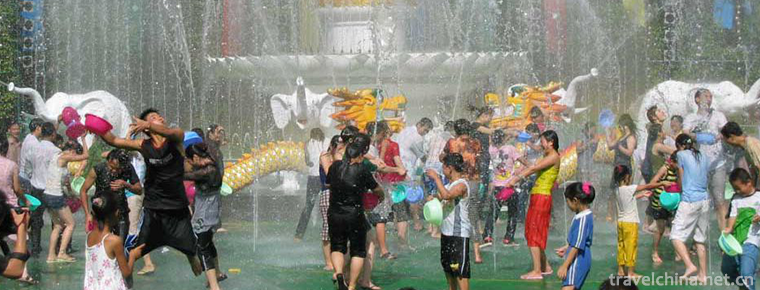
-
Braised Shredded Chicken with Ham and Dried Tofu
Braised Shredded Chicken with Ham and Dried Tofu, also known as chicken juice, boiled silk, the traditional dishes are Huaiyang cuisine.
Views: 196 Time 2018-10-27 -
Zhongyuan Great Buddha Scenic Area
The Central Plains Buddha, located in Shangtang Foquan Temple, Zhaocun Township, Lushan County, Pingdingshan City, Henan Province.
Views: 180 Time 2018-12-09 -
Mount Mangdang Han culture tourism scenic spot
Located in Yongcheng City, Henan Province, Mangdao Mountain Han Culture Tourist Area is a national AAAAA-level scenic spot which integrates landscape sightseeing, cultural appreciation and ecological .
Views: 199 Time 2018-12-09 -
Devil City
The Devil City is also known as the Wind City of Urho. Wuerhe Mining Area in the lower reaches of Jiamu River, located in the northwest margin of Junggar Basin.
Views: 86 Time 2019-02-07 -
Xixi Wetland Tourist Area
Xixi National Wetland Park is located in the west of Hangzhou City, Zhejiang Province. It is only 6 kilometers away from Wulin Gate, the main city of Hangzhou, and 5 kilometers away from West Lake..
Views: 125 Time 2019-02-25 -
Daur Folk Songs
Daur people mainly live in Inner Mongolia Autonomous Region and Heilongjiang Province, and a few live in Tacheng County, Xinjiang. Daur means "pioneer"..
Views: 283 Time 2019-04-22 -
Legend of Ji Gong
The legend of Jigong is a kind of Chinese folk oral literature evolved from the story of Daoji, a Buddhist monk in the Southern Song Dynasty. It is centered in Tiantai County,.
Views: 495 Time 2019-05-05 -
The Miao costumes
Miao is an international ethnic group originating from China. In the 2010 census, Miao is mainly distributed in Guizhou, Hunan, Yunnan, Chongqing, Hubei, Sichuan, Hainan, Guangxi and other provinces (.
Views: 147 Time 2019-06-05 -
Tajik Folk Songs
Tajik folk songs are very rich in content. The folk songs handed down to this day include folk songs reflecting ancient social life, customs and customs, eulogizing love and religious rituals. The mai.
Views: 166 Time 2019-06-17 -
Play with cattle
Playing cattle originated from the worship of nature in ancient times. In the era of farming civilization, cattle farming is particularly important for people's production and life. Therefore, through.
Views: 334 Time 2019-06-25 -
Gesala Ecotourism Area
Gesala eco-tourism area is located in Yankou Township, walai Township, Wenquan Township and Qinghe Township in the northwest of Yanbian County, Panzhihua City. It is located at the junction of Sichuan Province and Yunnan Province..
Views: 364 Time 2020-10-15 -
Neijiang climate
Neijiang City belongs to subtropical humid monsoon climate. Affected by the basin and the natural environment, it has the characteristics of mild climate, abundant rainfall, sufficient light and heat, and long frost free period. It is warm in winter and hot in summer,.
Views: 294 Time 2020-12-16
